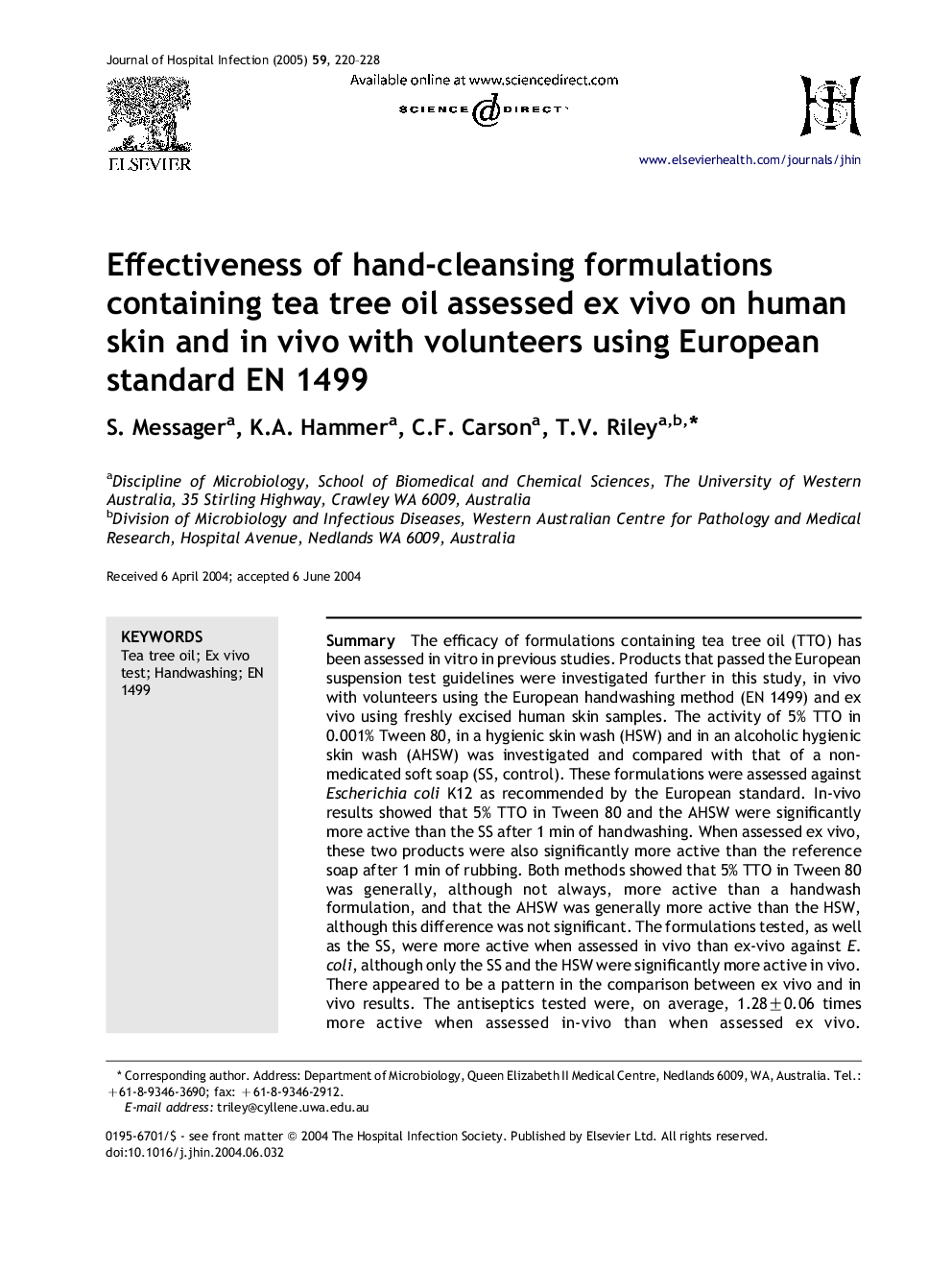| Article ID | Journal | Published Year | Pages | File Type |
|---|---|---|---|---|
| 9269403 | Journal of Hospital Infection | 2005 | 9 Pages |
Abstract
The efficacy of formulations containing tea tree oil (TTO) has been assessed in vitro in previous studies. Products that passed the European suspension test guidelines were investigated further in this study, in vivo with volunteers using the European handwashing method (EN 1499) and ex vivo using freshly excised human skin samples. The activity of 5% TTO in 0.001% Tween 80, in a hygienic skin wash (HSW) and in an alcoholic hygienic skin wash (AHSW) was investigated and compared with that of a non-medicated soft soap (SS, control). These formulations were assessed against Escherichia coli K12 as recommended by the European standard. In-vivo results showed that 5% TTO in Tween 80 and the AHSW were significantly more active than the SS after 1 min of handwashing. When assessed ex vivo, these two products were also significantly more active than the reference soap after 1 min of rubbing. Both methods showed that 5% TTO in Tween 80 was generally, although not always, more active than a handwash formulation, and that the AHSW was generally more active than the HSW, although this difference was not significant. The formulations tested, as well as the SS, were more active when assessed in vivo than ex-vivo against E. coli, although only the SS and the HSW were significantly more active in vivo. There appeared to be a pattern in the comparison between ex vivo and in vivo results. The antiseptics tested were, on average, 1.28±0.06 times more active when assessed in-vivo than when assessed ex vivo. Nevertheless, the main outcome of the European handwashing method is for the formulation tested to be significantly more active than the SS; both 5% TTO in Tween 80 and the AHSW achieved this both in-vivo and ex-vivo. TTO in Tween 80 and in formulations met the European in-vivo method requirements.
Keywords
Related Topics
Life Sciences
Immunology and Microbiology
Applied Microbiology and Biotechnology
Authors
S. Messager, K.A. Hammer, C.F. Carson, T.V. Riley,
